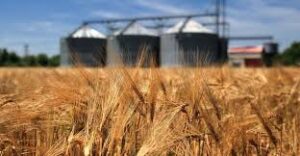Nina Bambeni | nina@radioislam.co.za
10 May 2023 | 14:00 CAT
1 min read

Photo Credit: Biz Community
According to Wandile Sihlobo, who penned an article for The Conversation, farmers in South Africa may face load-shedding difficulties, but it’s not all doom and gloom.
He joined Ml Sulaimaan Ravat at Radio Islam International to discuss his thoughts.
Responding to the seasonal importance of crops, Sihlobo said that cereals and some fruit, like grapes, enjoyed the cooler Winter weather to grow, making it a critical period for growth. Summer, he added, was relatively better than expected, especially as we had record maize crops, whilst the vegetable and livestock industries also performed well.
But farmers did face challenges, particularly in those areas where farmers had to maintain crops under irrigation. Diesel and renewable energy were required, and these cost money which farmers had to lay out.
He added that ESKOM put “load curtailment” in place to assist farmers in reducing electricity usage instead of cutting down entirely on usage.
Regarding how power cuts affect crops, Sihlobo says that half of the wheat grown, a third of sugar crops, 20% of maize crops and 15% of soybean were all grown under irrigation and power cuts put pressure in these areas. However, good rainfalls did mitigate the conditions by allowing crops to benefit from the rain.
Meanwhile, the feed processing sector did face severe operating challenges that necessitated spending on generators, solar panels and other energy requirements. The dairy, meat, and poultry industries also rely on energy and face similar challenges.
On the flip side, he says South Africa has been blessed with plentiful rainfall, and input costs, according to him, are down, and this offsets the losses incurred by the Ukraine-Russia war pushing grain prices up.
The weaker rand assists farmers who import as their products remain competitive internationally. But, it has the opposite effect on those who are importing fertilizers. Compared to last year, this bodes well for South Africa, however, add in the energy factor, and a different picture emerges.
Sihlobo concluded that South Africa and the Southern African region have plentiful food. As grain prices decrease globally, food price inflation could average 7-8% this year, which is better than last year. He added, though, that the energy crisis would keep food prices elevated.
Listen to the full interview with Ml Sulaimaan Ravat on Sabahul Muslim here







0 Comments